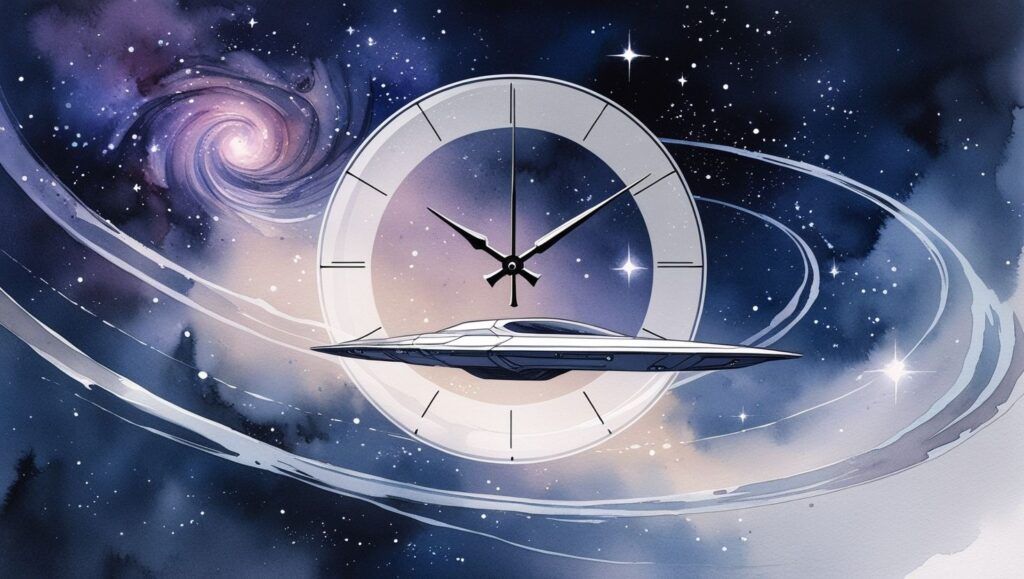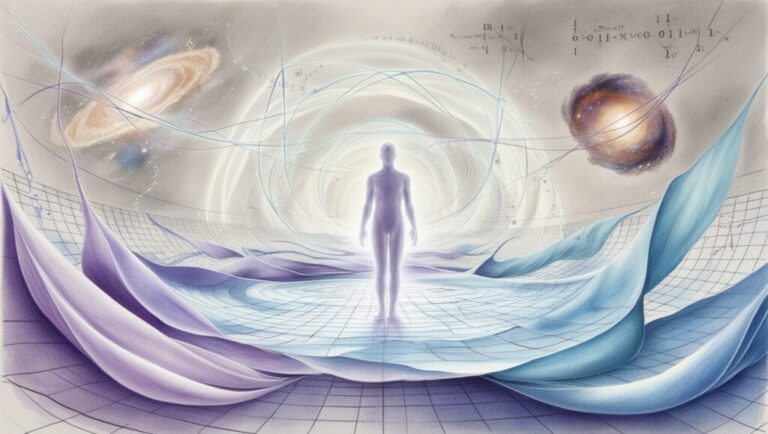What If Time Works Differently in Deep Space 2025
What If Time Works Differently in Deep Space 2025
When we look up at the stars, we’re not just gazing across space—we’re also looking across time. Light from distant galaxies has traveled millions, even billions, of years to reach us. But what if time itself doesn’t flow at the same rate in all regions of space? What if, in the vast, silent realms of deep space, time ticks differently than it does here on Earth? This idea, while sounding like science fiction, is actually grounded in real physics.
In this blog, we’ll dive deep into the concept of time dilation, how gravity and velocity affect time, and what it might mean for future space travel, communication, and even our understanding of life itself.
—
Understanding Time as We Know It
On Earth, we experience time in a regular, consistent flow. Seconds turn into minutes, minutes into hours, and we trust our clocks to keep everything in sync. But time isn’t a fixed backdrop to the universe. According to Albert Einstein’s theory of relativity, time is a dimension—one that can stretch, compress, or even slow down depending on where you are and how fast you’re moving.
—
The Science Behind Time Dilation
One of Einstein’s most famous ideas is that time is relative. This means the faster you move, or the stronger the gravitational field you’re in, the slower time passes for you compared to someone in a different frame of reference. This is called time dilation.
There are two main types of time dilation:
1. Special Relativity Time Dilation (based on velocity): If you’re traveling near the speed of light, time moves more slowly for you compared to someone at rest.
2. General Relativity Time Dilation (based on gravity): The closer you are to a strong gravitational source (like a black hole), the slower time passes for you.
—
What Is Deep Space?
Deep space refers to the regions of space far beyond our solar system—areas not influenced significantly by the gravity of nearby planets or stars. These are vast, low-energy, and low-gravity regions, where spacecraft might travel for years or centuries without encountering a major celestial body.
Because deep space is relatively free from intense gravitational fields and motion (compared to the environments near stars or black holes), it’s an ideal environment to explore how time might flow differently.
—
Could Time Move Faster in Deep Space?
Here’s where things get interesting. According to general relativity, in areas with very weak gravitational fields—like deep space—time would actually pass faster than it does on Earth. Earth’s gravity, though not extreme, still causes a small but measurable slowing of time.
For astronauts in deep space, time might tick a tiny bit faster. This effect is minuscule over short durations, but over long interstellar journeys, it could add up.
For example:
A clock on Earth might tick slightly slower than a clock on a spacecraft drifting in deep space.
An astronaut in deep space for 20 years might age a few minutes or hours more than someone who stayed near a planet.
—
Real-World Evidence of Time Dilation
Time dilation isn’t just theory—it’s been proven. The Global Positioning System (GPS) satellites orbiting Earth experience both gravitational and velocity-related time dilation. Engineers must correct their clocks daily to ensure accuracy for GPS users on Earth.
Similarly, astronauts aboard the International Space Station (ISS) experience time slightly slower than people on Earth due to their speed and orbital height.
—
Deep Space and Interstellar Travel
Now let’s push this further. Imagine a spaceship traveling through deep space at high speeds. Its crew could experience two types of time dilation:
Faster time due to weak gravitational fields
Slower time due to traveling at speeds close to the speed of light
The two effects might cancel each other out in some cases—or one might dominate. In theoretical journeys to nearby stars (like Proxima Centauri), astronauts might return to Earth having aged less than their friends who stayed behind.
This scenario could change how we plan long-duration missions. It might even allow humans to “travel into the future” simply by experiencing time more slowly.
—
What If Time Were Radically Different in Deep Space?
Let’s stretch the imagination. What if there are regions in the universe where time behaves in ways we can’t yet predict?
Possibilities include:
Pockets of warped space-time caused by invisible gravitational anomalies (like dark matter clusters)
Areas affected by exotic phenomena such as wormholes or quantum fields
Entire regions where the passage of time is non-linear—moving in loops, jumps, or alternate flows
While there’s no evidence of such regions today, theories in quantum gravity and string theory hint that our understanding of time may still be incomplete.
—




Impacts on Space Exploration and Communication
If time passes differently in deep space, this could pose challenges:
Time Lag in Communication: Light-speed delays already make real-time conversation with distant probes impossible. If time also flows differently at their location, interpreting their data could become even more complex.
Mission Planning: Navigating and returning from time-dilated zones might require advanced time modeling to sync with Earth-based systems.
Aging Differences: Long-term missions may result in astronauts aging differently than their counterparts on Earth. This isn’t just a sci-fi trope—it’s a real consequence of relativity.
—
Philosophical and Existential Implications
If time isn’t constant across the universe, what does that say about our concept of “now”?
Is the present moment universal?
Are there places in the cosmos where the universe is still in its early stages—while we’re billions of years ahead?
Could other civilizations be living at different “speeds” of time, making communication or contact nearly impossible?
These questions blur the line between physics and philosophy, suggesting that our place in time is as variable as our place in space.
—
Conclusion: Living with Time as a Flexible Dimension
Time, as it turns out, is not a rigid timeline. It’s elastic. It bends with gravity. It warps with speed. And in deep space—where gravity fades and distances stretch—time can behave in ways that challenge our deepest intuitions.
Understanding this could open new doors for space travel, cosmic exploration, and the very nature of existence. Whether we’re sending robots to Alpha Centauri or building future space colonies, we must treat time as an ever-changing companion, not a fixed constant.
—
For more on topics like this, check out our related blogs:
What If We Could Harness Energy from Black Holes?
https://edgythoughts.com/what-if-we-could-harness-energy-from-black-holes-2025
What If Dreams Could Be Recorded and Played Back?
https://edgythoughts.com/what-if-dreams-could-be-recorded-and-played-back-2025
And for further reading on time dilation and relativity, visit:
Wikipedia – Time Dilation: https://en.wikipedia.org/wiki/Time_dilation






2 Comments